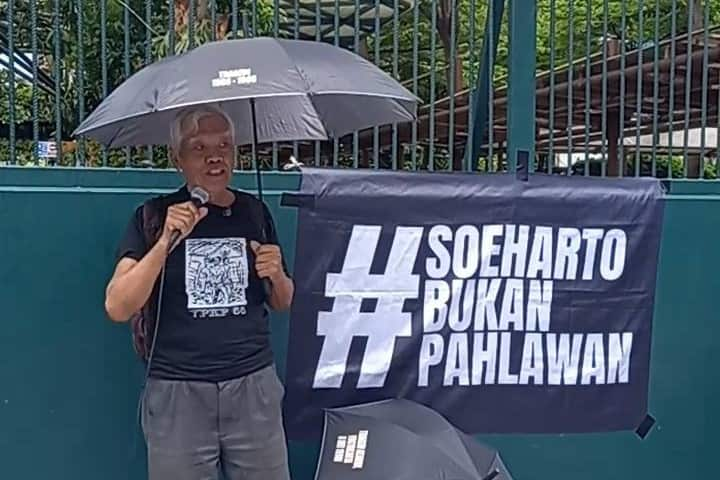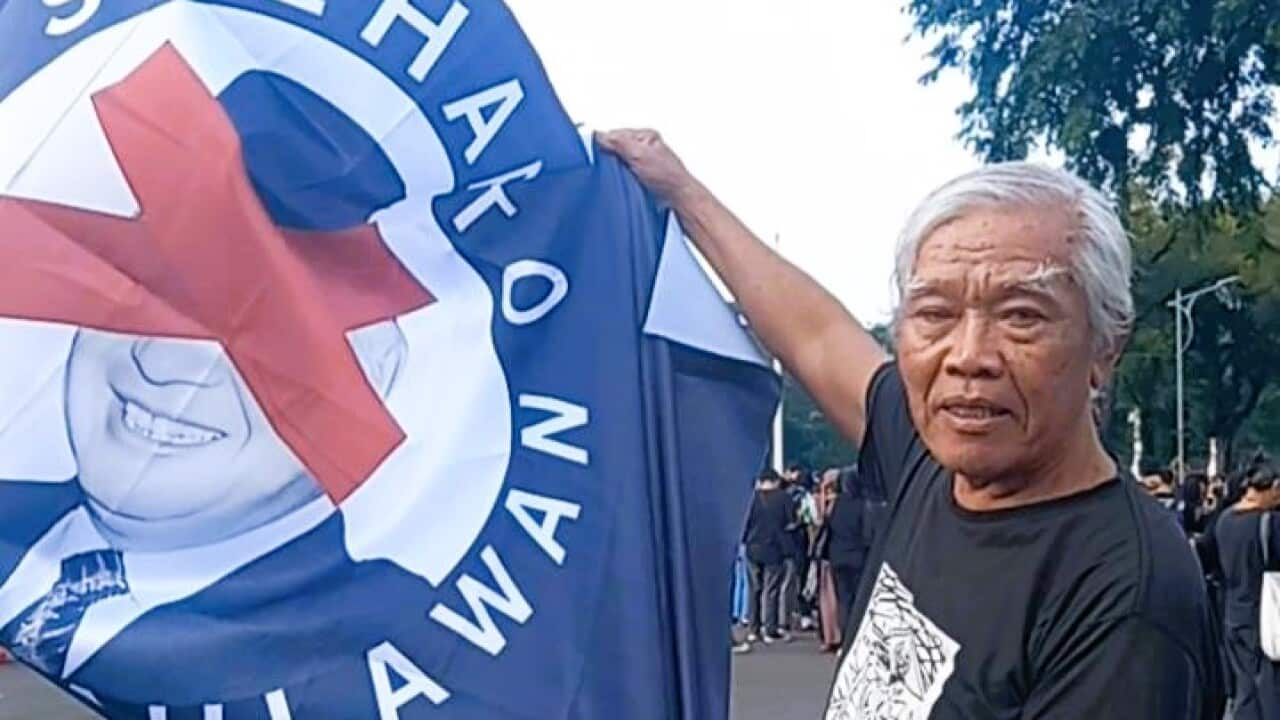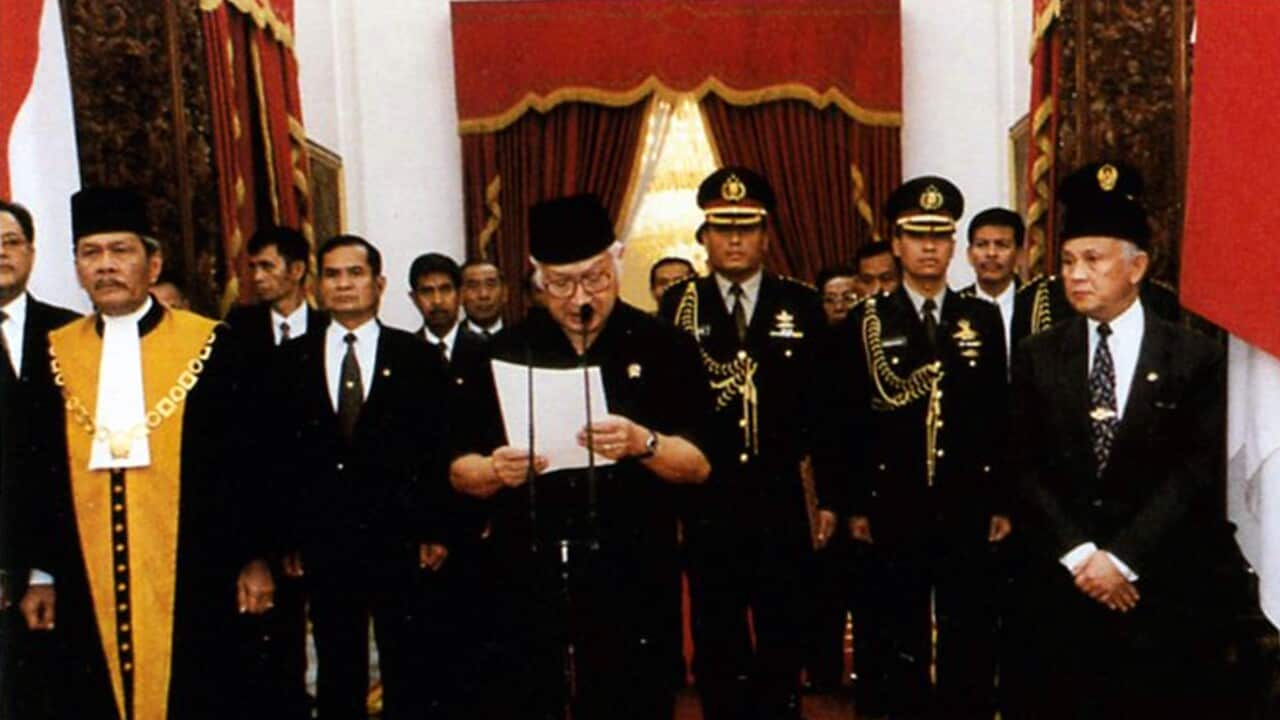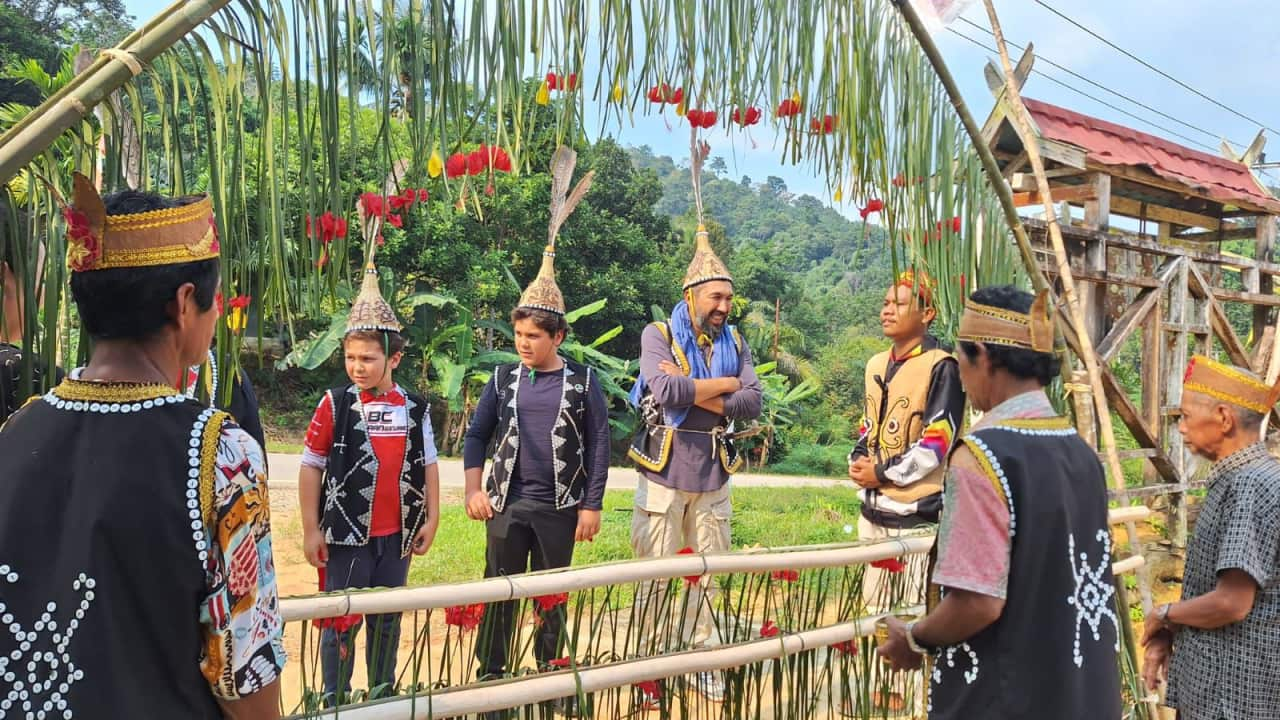Sueharto's involvement as ruler of the New Order in violence in the 1965 events does not seem to have been considered by the government in awarding the title of hero against him.
In fact, the government instead questioned what the evidence was of Sueharto's involvement in the alleged genocide of 65.
Bedjo Untung was one of the victims of the 65 events, and is now Chairman of the Violence Victims Research Foundation (YPKK) 65. He has traveled around Indonesia to gather evidence of the genocide.
Bedjo Untung is now almost 78 years old. In 1965, when the massacre took place, she was 17 years old.
Five years after that, he is still free, and therefore can understand what happened.
In 1970, at the age of 22, he was arrested by the New Order government.
Bedjo Untung had to spend nine years in detention, attend a forced labor program in Tangerang, Banten, and then went to prison in Salemba until 1979.

Since his release from prison, Bedjo Untung has never given up even though his life was very difficult because he had to endure the status as a former political prisoner of Soeharto. His courage against the New Order fueled his belief that justice and truth should be upheld.
He wanted the tragedy of 65 to be resolved, and that is why he has continually spoken out for the rights of the victims of 65.
In addition, he was also active in the movement to uncover the sins of the New Order in the events of Trisakti, Semanggi, up to the assassination of Munir post-New Order.
Bedjo Untung said that awarding the title of National Hero to Soeharto really hurt the hearts of the 65 victims, student groups and Indonesian people in general. Soeharto, he said, was a Human Rights criminal, specifically in the tragedy of 65.
YPKP 65, Bedjo said, found evidence that there were mass graves. Documents from the US intelligence agency, the CIA, which were made public, also claimed Suharto was involved in the genocide of 65.
YPKP 65 has conducted research in Sumatra, Java, Bali to Nusa Tenggara. Many mass graves of the victims were found that indicate there was a murder. Bedjo said that the testimonies of victims who were sequestered, imprisoned on Buru Island, in Nusakambangan and even himself as a direct victim, were sad when confronted with the fact that Soeharto was declared not involved in genocide 65.
Indonesia's Human Rights Commission (Komnas HAM) has recommended the results of a pro juscia investigation into the 65 tragedy, calling the incident part of a humanitarian crime. This was reinforced by the ruling of the Mahmakah of Human Rights in The Hague, Netherlands, which called the crimes of 65 a genocide.
All this, Bedjo said, was evidence that Soeharto was involved in mass killings that year.
In 2012 Komnas HAM had sent recommendations to the attorney general, and the government was asked to form an ad hoc human rights court for the issue.
But the recommendation was never followed by the ruling government.
Until his death in 2008, there had never been any legal proceedings against Suharto related to the events of 65.
Although Indonesia entered the post-1998 reform era, according to Bedjo, those in power were still those in the New Order circle.
Bedjo Untung believes that the remnants of the New Order's forces continue to fight back. Therefore, the Indonesian government from 1998 to the present, lacked the political will and ability to prosecute the 1965 genocide.
Listen to SBS Indonesian every Monday, Wednesday, Friday and Sunday at 3pm. Follow us on Facebook and Instagram, and don't miss our podcasts.






